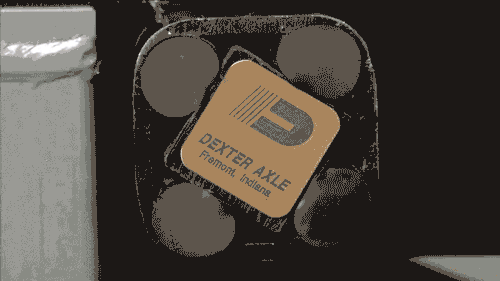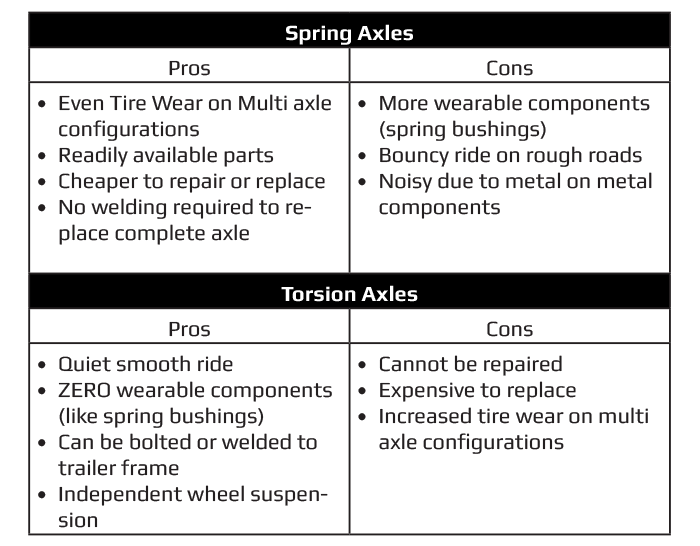Over the years we have seen many trailers come through our shop with all kinds of axle and suspension configurations. Out of all the possible types on the market, today we want to go over the two main systems: spring and torsion trailer axles.
Spring Axles

Spring axles function by using stacked metal leaf springs, either under or over the axle beam, to support the weight of the trailer. Spring axles are available in single, tandem, and tridem configurations. In both tandem and tridem trailers, the leaf springs are connected by an equalizer. The equalizer helps distribute the weight of the trailer more evenly over all the axles. Spring axles are very common on all makes and models of trailers, as they are more cost-effective than torsion.
Click here to see our comparison of the different types of spring axles.
Torsion Axles

Torsion axles work by using rubber cords or cartridges inside the axle tube to handle suspension travel and shock absorption. Torsion axles do not use leaf springs, but instead the compression of the rubber to supply the suspension support needed. Each wheel works independently from one another. Torsion axles are also bolted or welded directly to the trailer frame, which adds stability and structure to the trailer frame.
So which is better, torsion or spring axles? When it comes to selecting the axles for your trailer, and making the decision between spring and torsion it can be a challenging task. Here are some pros and cons of both axle setups:

Ultimately, the decision between spring and torsion axles comes down to the application. What we have found is that for trailers that tend to be pulled by multiple drivers, with varying loads and across different terrain, spring axles are a good fit as repairs cost less and are easier to perform.
On the other hand, transport companies who keep the same driver with each trailer and travel mostly highways should consider torsion axles to keep annual maintenance cost down.
We hope that this short tutorial has helped broaden your understanding of the spring and torsion axles. If you have any questions or comments, please don’t hesitate to give us a call!
